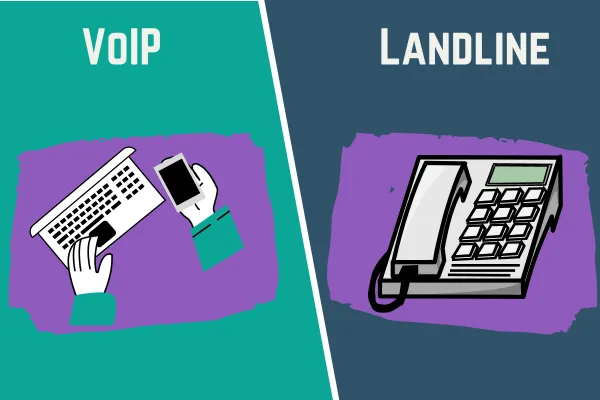Telephone Systems

VoIP vs. Traditional Phone Systems: Which is Best for Your Business?
I. Introduction
A. Importance of choosing the right phone system
Selecting the right phone system is crucial for businesses to thrive. Whether you're a small startup or a large corporation, effective communication is the backbone of success. That's why choosing a phone system that aligns with your business needs is paramount.
B. Overview of VoIP vs. traditional systems comparison
Businesses are faced with a choice between VoIP (Voice over Internet Protocol) and traditional phone systems. While both have their merits, VoIP stands out as a modern, innovative solution that offers unparalleled flexibility, cost-effectiveness, and efficiency. Let's delve into a comparison between VoIP and traditional systems to understand why VoIP is the superior choice for businesses in today's digital era.
II. VoIP vs. Traditional
A. Explanation of VoIP and traditional systems
VoIP, or Voice over Internet Protocol, utilizes the internet to transmit voice data, allowing for seamless communication over digital networks. In contrast, traditional phone systems rely on landlines and circuit-switched networks to facilitate communication. While traditional systems have served businesses well in the past, they come with inherent limitations in terms of flexibility, scalability, and cost-effectiveness.
B. Benefits and drawbacks of each
When comparing VoIP to traditional phone systems, it's clear that VoIP offers a myriad of benefits that traditional systems simply can't match. VoIP eliminates the need for expensive hardware and infrastructure, reducing upfront costs and maintenance overheads. Additionally, VoIP systems provide advanced features such as virtual receptionists, call forwarding, and video conferencing, empowering businesses to streamline communication and enhance productivity. Despite its advantages, traditional phone systems are often constrained by geographical limitations, rigid hardware requirements, and higher operational expenses.
III. Key Differences
A. Cost, features, scalability, reliability
Cost: VoIP systems typically offer lower upfront costs compared to traditional phone systems, as they require minimal hardware and infrastructure. Additionally, VoIP providers often offer competitive pricing plans with bundled features, resulting in significant cost savings over time. On the other hand, traditional phone systems involve higher upfront investments in hardware such as PBX systems and landlines, as well as ongoing maintenance costs.
Features: VoIP systems boast a wide range of advanced features that enhance communication and collaboration, such as virtual receptionists, auto-attendants, voicemail-to-email transcription, and video conferencing. These features provide businesses with greater flexibility and productivity. In contrast, traditional phone systems offer basic calling features with limited customization options.
Scalability: VoIP systems are highly scalable, allowing businesses to easily add or remove phone lines as needed without significant infrastructure changes. This scalability is particularly beneficial for growing businesses that require flexibility and agility. Traditional phone systems may be more challenging to scale, requiring additional hardware and infrastructure upgrades to accommodate growth.
Reliability: Both VoIP and traditional phone systems can provide reliable communication services. However, VoIP systems may be susceptible to internet connectivity issues, resulting in potential downtime or call quality issues. Traditional phone systems, while less reliant on internet connectivity, may experience service disruptions due to line outages or hardware failures.
IV. Making the Decision
A. Weighing pros and cons
To make an informed decision between VoIP and traditional phone systems, it's crucial to weigh the pros and cons of each option. Consider factors such as cost, features, scalability, and reliability, as well as how well each system aligns with your business goals and objectives.
B. Considering budget and growth
Additionally, take into account your budget and anticipated growth. While VoIP systems may offer cost savings and scalability benefits, traditional phone systems may provide a sense of familiarity and reliability for businesses with stable communication needs. Evaluate your budget constraints and future growth plans to determine which phone system offers the best long-term value for your business.
By carefully weighing these considerations, you can make a decision that ensures optimal communication and productivity for your business.


